How to Charge Your Phone Faster: The Ultimate Guide
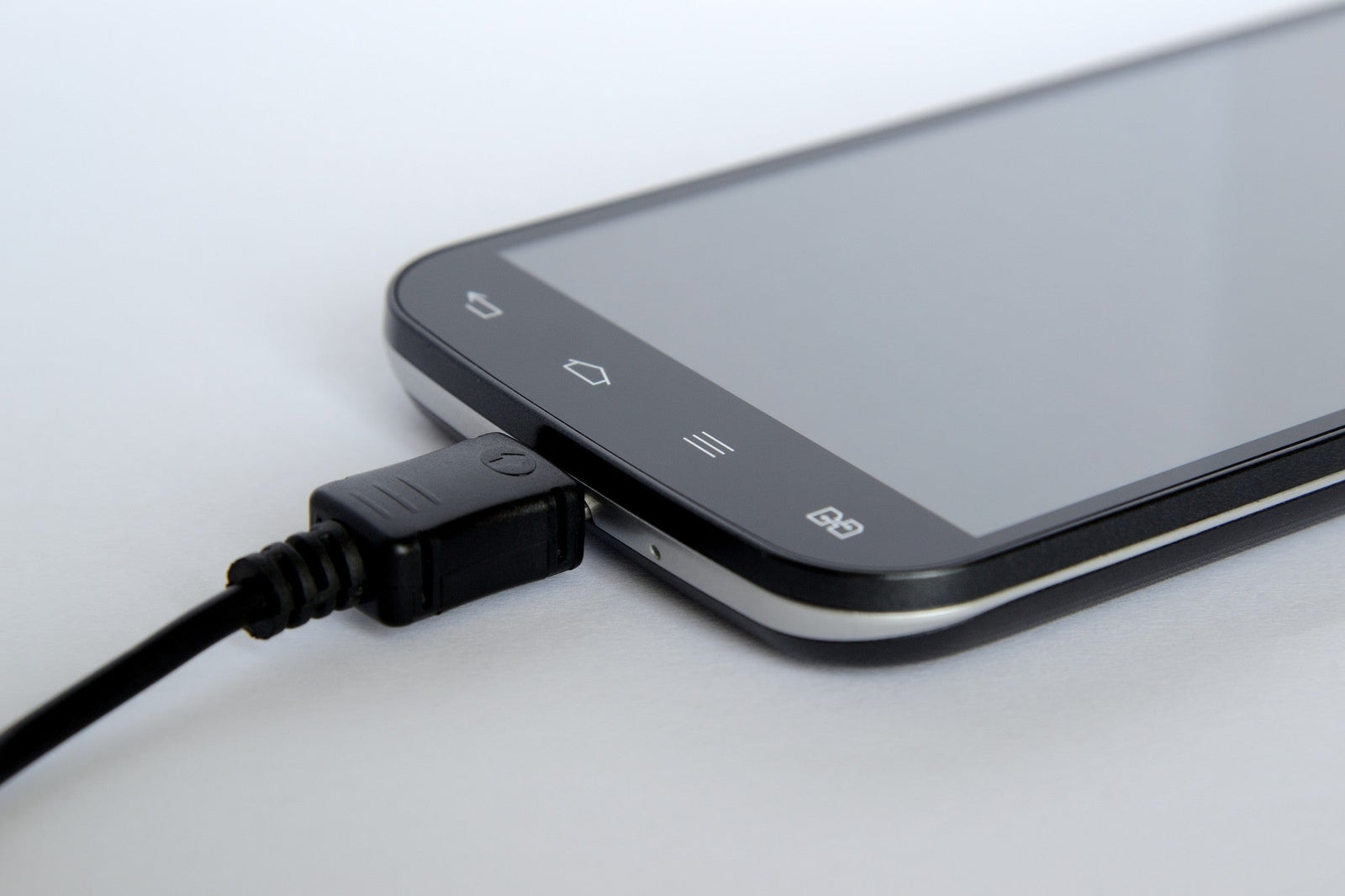
Wondering how to charge your phone faster without buying a new one? You’re not alone. Many people struggle with slow charging and don’t realize small tweaks can make a big difference. This guide breaks down the best ways to charge your phone faster, from using the right cable to changing simple settings.
You plugged everything in. Your phone is on and shows that it's charging, but the fast charging isn't working. You're starting to worry that you'll need to send your phone in for repairs.
Believe it or not, the problem of a slow charging speed might be the length of your charging cable.
The characteristics of a cable affect its charging speed. If you're wondering does cable affect charging speed, the answer is yes it absolutely does. The thickness of the wire and the resistance of the cable are both important aspects to keep in mind.
Today you'll learn how phone charging works, and how to make your phone charge faster.
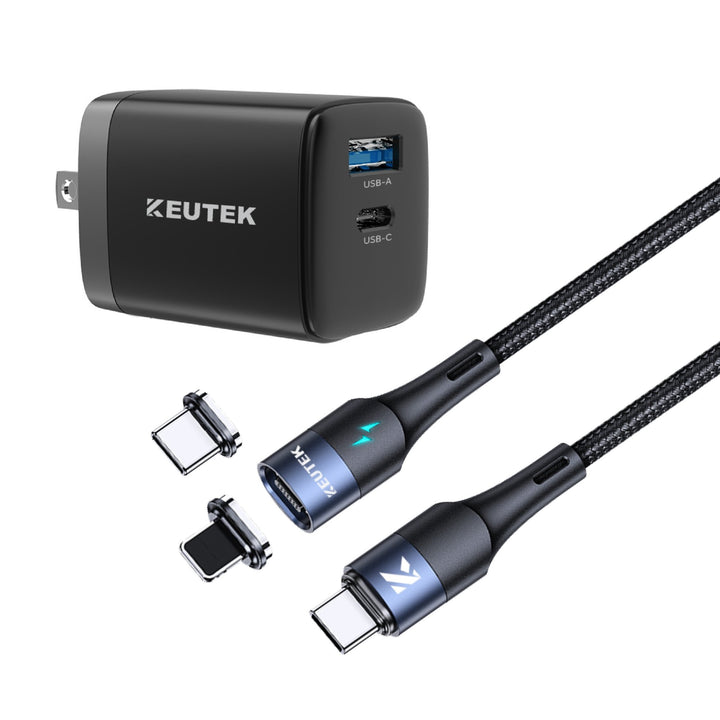
Fast Charging Cable + Wall Charger Bundle
Crafted for heavy everyday use. Fast charges all Apple and Android devices. Charges up to 50% from 0% in 20 minutes. Automatic shutoff protects your device from overcharging.
Shop NowKey Takeaways
- Shorter cables equal faster charging: Less resistance means more power gets to your device. A 3-foot cable offers a good balance of speed and usability. If you're in a hurry, using the right setup can give you a quick charge in just minutes.
- Cable quality is crucial: High-quality materials and construction ensure efficient power transfer. Look for shorter cables with the right connectors (like USB-C) and thicker gauges.
- Optimize your charging setup: Use the correct wattage wall charger for your device, keep your software updated, and maintain a clean charging port. If you're having trouble, test with different cables and chargers.
Why Is My Phone Charging So Slowly?
Fast charging is a newish technology. It allows modern smartphones to charge from empty to full battery life in record time. Sometimes in as little as 9 minutes.
So how does this technology work?
First, it starts with your power block. The adapter you plug into the wall serves as a regulator for how much current you can put into your phone.
Watts and Fast Charging Explained
When it comes to electricity, it's all about the watts. To determine watts, you have to multiply the current by the voltage.
Current is the amount of electricity that the wires are transmitting. Voltage is the power of the current (i.e. how much current it can push forward at a time).
So charging adapters with higher wattage can put more energy into your phone, faster.
But none of this matters if your phone isn't rated for fast charging. Just because you plug your phone into a higher-watt charger doesn't mean it will charge faster.
Your phone will charge faster if you use a fast-charging adapter and a charging cable rated for your preferred charging speed. This means using a cable manufacturer recommend for your phone.
This is why if you plug your phone into a random power block, you won't get faster-charging speeds. It's likely that the block produces wattage designed for another device.
The same goes if you plug your phone into an airport's USB hub or a USB hub on your desktop. These hubs usually use smaller wattage so they can work with any electronic devices.

Fast Charging Cable + Wall Charger Bundle
Crafted for heavy everyday use. Fast charges all Apple and Android devices. Charges up to 50% from 0% in 20 minutes. Automatic shutoff protects your device from overcharging.
Shop NowDo Charging Cables Really Matter?
There's one piece of this puzzle that we're forgetting: the charging wire. A good charging wire can make all the difference.
Not all cables are equal. Manufacturers design some cables to carry more current and voltage (watts). These cables are necessary to enable fast charging.
You might think that you can take any cable and, as long as you have the fast charging adapter, your phone will charge at fast speeds. However, that cable is as essential to the process as the adapter and phone's designed specifications.
How Cables Affect Phone Charging Speed
First of all, the charging cable has a certain gauge (the thickness of the wire). Gauge determines how much power it can send.
The quality of the cable likewise affects charging speed. Good conductive materials and quality manufacturing transmit more power.
But as you read above, there's another important factor: the length of the cable.
It may seem surprising that longer cables or shorter cables can affect charging speed. Electricity travels faster than you can blink. The electric company in your neighborhood has cables that run for miles!
There's a concept known as resistance. Resistance means that as electricity travels down a wire, a small part of it doesn't make it to the other end. So you might put 50 watts down a cable, but only 48 make it to the other side.
Resistance is usually very small, but it does affect charging speed. The longer the cable, the more resistance. The shorter the cable, the less resistance.
So if you're using a long phone charger, like a 6-foot cable, your phone will charge much more slowly than if you were using a shorter 3-foot cable. Longer cords add more resistance, which reduces power delivery to the device Your adapter is dumping X amount of watts, but only Y amount makes it to the end because of the cable's resistance.
Cable Length
As discussed, shorter cables mean less resistance and faster charging. A three-foot cable will charge your phone more quickly than a six-foot cable. This is because, with shorter cables, more power from your wall charger reaches your phone. Think of it like a water hose—a shorter hose delivers water more forcefully than a longer one, where some pressure is lost along the way. So, while a longer cable might be convenient for reaching across your bed or couch, it comes at the cost of charging speed. If speed is your priority, stick to shorter cables. For those constantly on the move, a car charger paired with a shorter cable is a great way to top up your battery quickly. If you’re aiming to improve your phone charging speed, stick to shorter, high-quality cables and avoid using your phone while it charges.
Cable Material
The material of your charging cable plays a crucial role in charging speed. High-quality materials like copper or aluminum offer better conductivity, allowing for efficient power transfer. Cheaper cables often use lower-quality materials, which can increase resistance and slow down charging. Additionally, the cable's construction matters. Look for well-made cables with reinforced connectors and thick insulation to ensure durability and prevent power loss. Investing in a durable, high-quality cable, like KEUTEK's ProSeries Max, is a smart move for reliable fast charging.
USB-C vs USB-A: Which Connector Charges Faster?
Not all USB connections are created equal. USB-C is the newer standard and generally supports faster charging speeds than the older USB-A. Make sure your cable and adapter both use USB-C to take full advantage of fast charging capabilities. Using a USB-A to USB-C cable, even with a fast-charging adapter, can limit the charging speed. Always check your phone’s manufacturer recommendations to determine the optimal USB version and connector for the fastest charging speeds. If you need a versatile solution for charging multiple devices, consider a portable power bank with multiple USB-C and USB-A ports.
How to Charge Phone Faster: Quick Wins You Can Try Today
The fastest way to charge your phone is to start with a proper fast-charging cable and wall adapter combo. Avoid plugging into laptops or car USB ports—they deliver less power than wall sockets.
You can also turn on Airplane Mode, close background apps, or avoid using the phone while charging to help your device charge faster. These little tricks reduce power consumption while the battery fills up. If you need a quick charge before heading out, even a 15-minute boost can make a difference. If you’re wondering how to charge faster without buying a new charger, try switching on Airplane Mode or closing background apps to reduce power drain.
Best Tips on How to Charge Phone Faster Without Buying Anything
Now that we've covered the basics, let's discuss a few things you can do to improve the charging speed of your electronic devices.
First, use your phone's original fast-charging adapter. Conversely, buy a fast-charging adapter that has the same wattage. Purchasing an adapter that has less wattage will slow your charging speed.
Second, use the original manufacturer's cable. The manufacturer designed it to work with fast charging. With phones that have very fast charging speeds, they might require the original cable to work.
If you need a third-party cable, get a short charging cable ideally 3 feet or less for better performance.
Should You Use Airplane Mode to Charge Phone Faster?
Yes, enabling Airplane Mode reduces power usage while charging. Since your phone isn’t constantly searching for signal or running background data, it can refill the battery more efficiently. Just turn it back on when you're done.
If you plan to use wireless charging, make sure you get a wireless charger that can fast charge. A wireless charger provides a very convenient way of charging your phone without cables. Generally speaking, though, they are much slower than a cable.

Fast Charging Cable + Wall Charger Bundle
Crafted for heavy everyday use. Fast charges all Apple and Android devices. Charges up to 50% from 0% in 20 minutes. Automatic shutoff protects your device from overcharging.
Shop NowOptimize Your Charging Setup
Choosing the Right Charger
Wall Chargers vs. USB Ports
Always charge your phone using a wall outlet and the manufacturer-approved charger for the best charging speed. Computer USB ports, and other USB charging ports, like those in cars or airplanes, deliver less power. This is why plugging your phone into your laptop will charge it much slower than plugging it into the wall. Wall chargers provide the fastest charging speeds. To optimize charging speed, make sure your charger matches your phone’s recommended wattage and always use a short, certified cable.
Plugging your phone into a wall charger ensures your phone gets the maximum wattage it needs to charge quickly. Think of it like filling a bucket with water. A wall outlet is like turning on the faucet all the way, while a USB port is only halfway. You’ll still fill the bucket, but it will take much longer.
Understanding Wattage and Amperage
When it comes to electricity, it’s all about the watts. Watts measure power, and higher wattage means more energy transfers to your phone, leading to faster charging. Wattage is determined by multiplying the current (amperage) by the voltage. Higher wattage chargers are key for fast charging.
Think of amperage as the amount of electricity flowing through the wire, like the volume of water flowing through a pipe. Voltage is the force pushing that electricity, like the water pressure. Higher wattage chargers deliver more “juice” to your phone for a quicker charge. However, your phone’s charging speed is also limited by its internal circuitry. Using a higher wattage charger than your phone is designed for won’t make it charge any faster.
Using KEUTEK's ProSeries Cables for Optimal Charging
Not all cables are created equal. Some cables are specifically designed to carry more current and voltage (watts)—essential for fast charging. Using the right cable is just as important as using the right charger. Even with a powerful wall charger, a low-quality or damaged cable can significantly slow down your charging speed. Manufacturers design some cables to enable fast charging.
Two key factors influence a cable's effectiveness: gauge and length. The gauge refers to the thickness of the wire inside the cable. A thicker gauge (lower AWG number) means less resistance and faster charging. The length of the cable also matters. Longer cables have more resistance, meaning some power is lost along the way. Shorter cables minimize this loss, delivering more power to your device for faster charging.
For optimal charging performance, consider KEUTEK's ProSeries cables. These cables are engineered with high-quality materials and construction to ensure minimal resistance and maximum power delivery. Pairing a KEUTEK ProSeries cable with a compatible fast wall charger optimizes your charging setup and keeps your devices powered up quickly and efficiently.
Get the Most Out of Your Phone's Charging Speed
Now you know all the secrets to making your phone charge faster. Longer cables, substandard cables, and incorrect adapters slow the charging speed of your devices. Make sure you check your phone's manual to know what wattage you need for your adapters and cables.
Now that you've improved your charging speed at home, it's time to maximize it on the road. A quality device can ensure you take those fast charging speeds everywhere you go.
Maintaining Battery Health for Long-Term Fast Charging
Fast charging is awesome—it keeps us powered up and ready to go. But to keep your phone happily fast charging for years to come, a little battery care goes a long way.
Avoid Extreme Temperatures
Think twice before leaving your phone baking in the sun or charging it in a sweltering hot car. Overheating can slow down charging and even damage the battery over time. The same goes for freezing temperatures—extreme cold isn't a battery’s best friend either. A comfortable room temperature is ideal for charging.
Keep Your Software Updated
Those software updates aren't just about new features. They often include optimizations that can improve charging efficiency and overall phone performance. So, next time you see that update notification, don't ignore it! Keeping your software current ensures your phone is running as smoothly as possible, including when it's charging.
Troubleshooting Slow Charging Issues
Is your phone charging slower than molasses? Before you panic, try these troubleshooting steps:
Check Your Charging Port
Dust and lint can build up in your charging port and block the connection. Grab a soft brush, some compressed air, or even a toothpick (carefully!) and gently clean out any debris. You might be surprised at what you find lurking in there. A clean charging port ensures a solid connection for optimal charging.
Test Different Cables and Chargers
Not all cables and chargers are created equal. Some cables are designed to carry more power than others, which is essential for fast charging. Try a different cable, preferably a shorter one. Shorter cables mean less resistance and faster charging. Also, check your phone's manual to make sure you're using the correct wattage for your device. A high-quality cable, like the KEUTEK ProSeries USB-C cable, combined with the right charger, can make a big difference in charging speed. If you're still experiencing slow charging after trying these tips, it might be time to consider a new charger or have your phone checked by a professional. Practicing good charging habits like unplugging once full and avoiding heat exposure can keep your battery performing at its best for years.
Related Articles
- Do Shorter Phone Charger Cables Charge Faster? | KEUTEK
- Does the USB Cable Have Any Effect on Fast Charging? | KEUTEK
- Will a Fast Charger Work With a Normal Charging Cable? | KEUTEK
- Understanding Quick, Super, Fast and Dash Charging- KEUTEK
- Do You Really Need a Special Cable for Fast Charging? | KEUTEK
Frequently Asked Questions
What is the quickest way to charge your phone?
The quickest way to charge your phone is to use a fast-charging wall adapter paired with a short, high-quality USB-C cable. Plug it into a wall outlet—not a laptop or car port—for maximum power. Also, keep your screen off and avoid using the phone while charging to speed things up. This is the best way to charge your phone quickly without harming the battery.
How can I make my charging time faster?
You can make your phone charge faster by using a shorter charging cable, turning on Airplane Mode, and closing any background apps. Make sure you're using a fast charger with the correct wattage for your device, and always charge from a wall outlet when possible.
How do I get super fast charging?
To get super fast charging, you need a phone that supports it, along with a high-wattage charger (like 25W, 45W, or more depending on your phone) and a certified cable that can handle that speed. Check your phone’s specs and use only recommended accessories to unlock super fast charging.
Does putting your phone in airplane mode charge faster?
Yes, turning on Airplane Mode can help your phone charge faster. It reduces battery use by stopping things like Wi-Fi, Bluetooth, and signal searching in the background. That means more power goes straight to the battery while it's charging.
Is it bad to charge your phone overnight?
Charging your phone overnight occasionally won’t hurt it, but doing it every night can heat up the battery and wear it down faster over time. Most modern phones stop charging once they hit 100%, but keeping them plugged in can still generate heat. To keep your battery healthy, unplug once it’s full or use a smart charger with auto shut-off.
Why is my phone charging so slowly even with a fast charger?
Several factors can contribute to slow charging even if you're using a fast charger. One of the most overlooked reasons is the cable does cable affect charging speed? Yes, it does. A low-quality or long cable increases resistance and reduces power delivery. Also, ensure your phone and charger are compatible in terms of wattage and USB version (USB-A vs. USB-C). Sometimes, debris in the charging port can hinder the connection, so try cleaning it gently.
Does cable length really affect charging speed?
Yes, cable length plays a role in charging speed. Longer cables naturally have higher resistance, meaning some of the power from your charger is lost before it reaches your phone. Shorter cables minimize this power loss, resulting in faster charging times.
What type of cable is best for fast charging?
For fast charging, look for a high-quality cable with a thicker gauge (lower AWG number) and shorter length. High-quality materials like copper or aluminum offer better conductivity. Ensure the cable and connectors are compatible with your device's fast-charging capabilities (e.g., USB-C for most modern phones). KEUTEK's ProSeries cables are specifically designed for fast charging, offering excellent conductivity and durability.
Are wireless chargers as fast as wired chargers?
Generally, wired chargers offer faster charging speeds than wireless chargers. While wireless charging is convenient, the power transfer isn't as efficient as a direct wired connection. If speed is a priority, stick with a wired charger, especially one designed for fast charging.
What can I do to maintain my phone's battery health and keep it charging quickly?
Avoid exposing your phone to extreme temperatures, as both heat and cold can negatively impact battery performance and lifespan. Keep your phone's software updated, as updates often include optimizations for charging efficiency. Also, regularly clean your charging port to ensure a good connection.













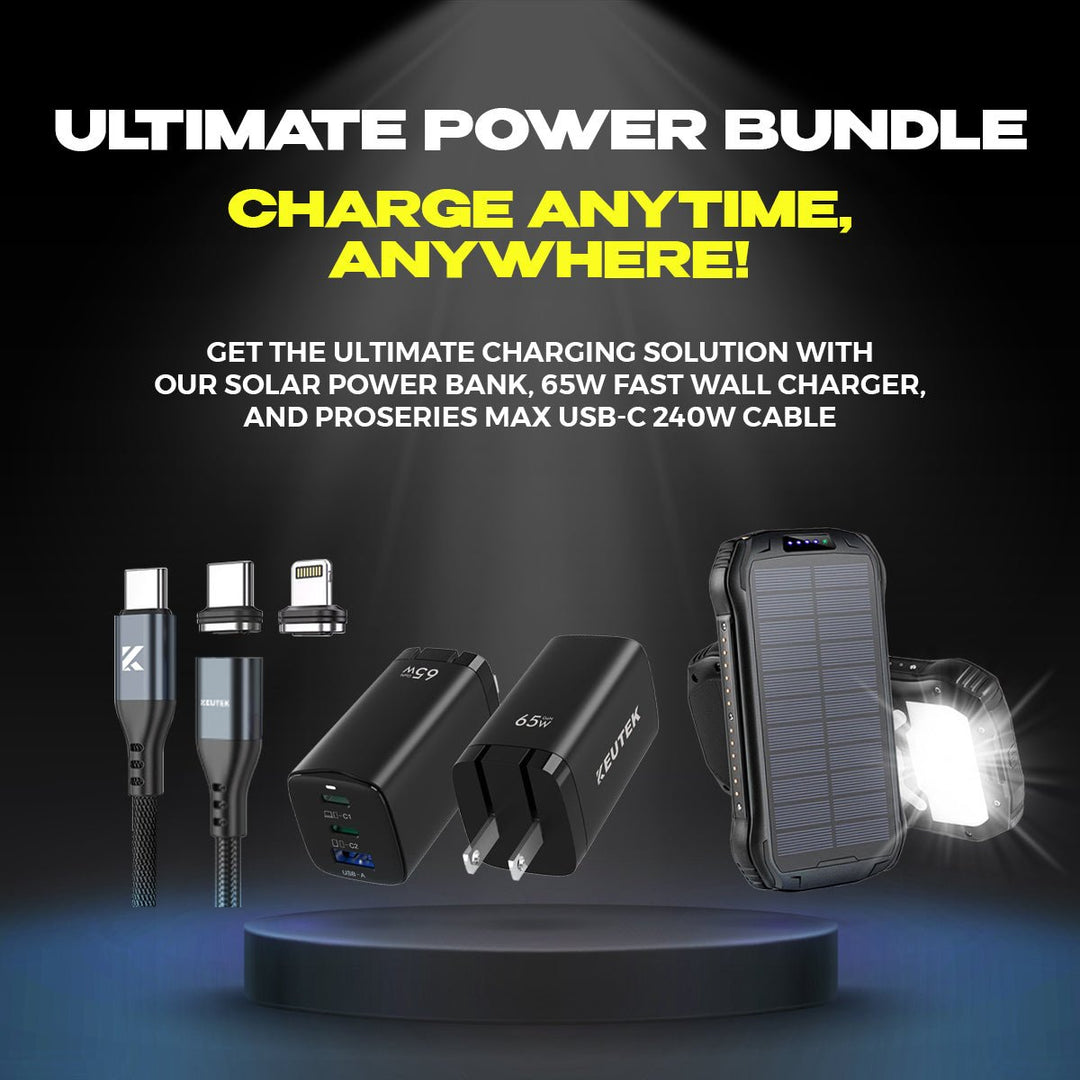
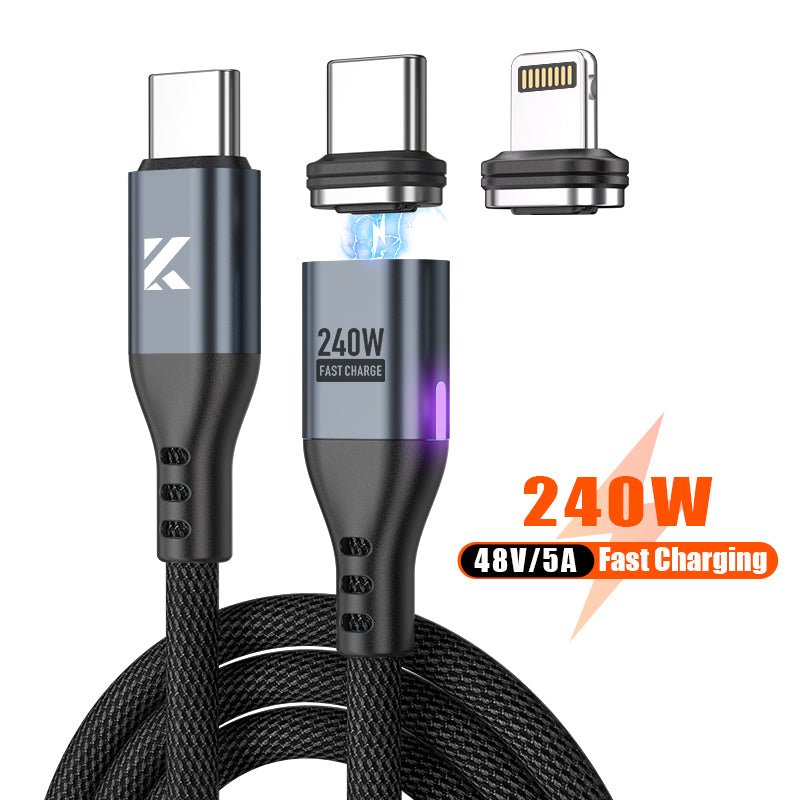
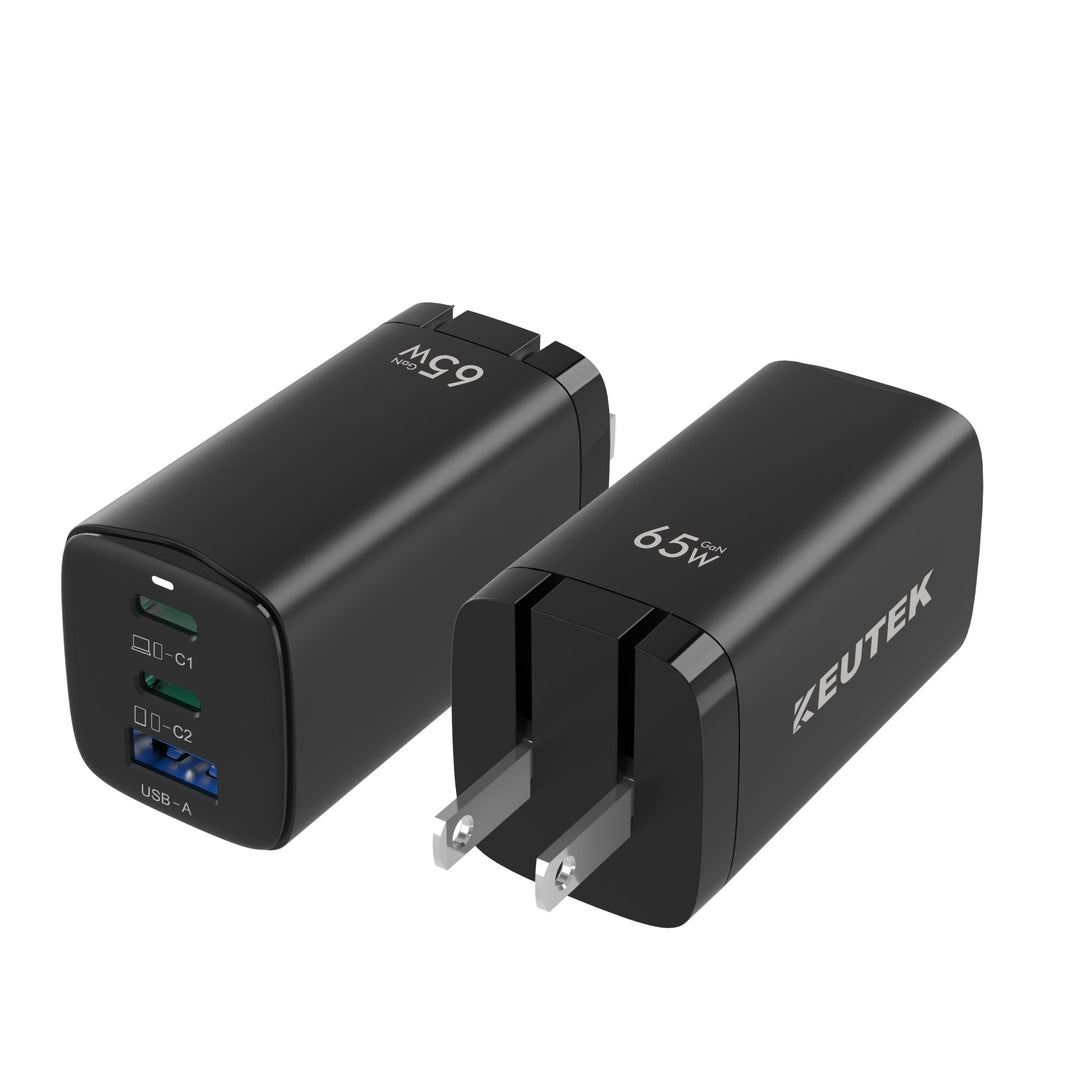

Leave a comment